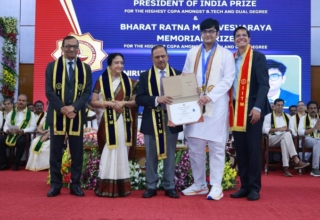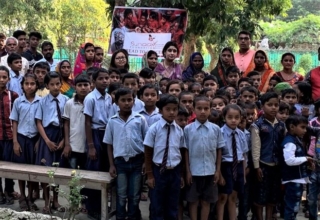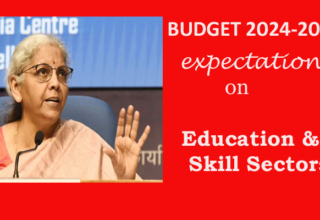
Budget 2024-25 is anticipated to be reform-oriented and immensely crucial for India to compete and adapt amid significant global political and economic shifts. Therefore, a lot of industry leaders wish for suitable budgetary measures that would help the country to navigate the challenges.
According to Anish Srikrishna, CEO, TimesPro, the current GST rate of 18% on education, comparable to that on luxury goods and services, should be reduced to 5% and eventually to zero. Additionally, the government should consider lowering education loan interest rates to 3-5% for undergraduate, postgraduate and professional upskilling courses. “This is essential for India’s growth, as the focus in the 21st century transitions from ‘Skill India’ to ‘Skilled India’,” he emphasizes while adding that India’s ambition to become a ‘Global Skill Hub’ will be validated by the increasing demand for highly skilled professionals that the country produces.
“This requires a greater emphasis on bridging the industry-academia gap through higher education and unique skill development for our youth and working professionals, which will be crucial in generating employment opportunities within the country. Moreover, there should be incentives to equip India’s millions of gig workers with new-age skills through technology-based learning,” he says.
Srikrishna also advocates introducing a Special Purpose Vehicle and collaborating with higher edtech platforms and public and private institutions to accelerate skilling outcomes. “As digitalisation gains precedence, the edtech sector has demonstrated the potential for innovation and research to provide quality education to a far wider audience. The government should adopt an inclusive approach towards new learning platforms and allocate funds to the edtech sector for continuous technological development in conjunction with public institutions, updating pedagogy and stimulating edtech startups to foster growth and diversification within the sector,” he adds.
Focusing on improving digital infrastructure to strengthen our examination systems by incorporating smart assessments will ensure safe, accessible, and efficient evaluations.
According to Veerasundar V., Chief Financial Officer, Simplilearn, India should also explore successful models from other nations, such as Singapore’s Skillfuture program, which offers fiscal incentives to encourage individuals to attain mastery of skills and forge rewarding careers, thus preparing India for the future. “It would be great if the Government could reconsider the 18% GST on educational products would ease the burden on middle-class families. Moreover, subsidies and tax breaks for tablets and laptops would make them more affordable, creating a more inclusive and technologically advanced education system nationwide,” he adds.
“I would alike to encourage the government to collaborate with tech-enabled entities, as this offers a pathway to upskill a broader segment of the Indian population through programmes, certifications, and employment opportunities. Setting aside funds for continuous technological development and establishing a solid regulatory framework are essential for the sector’s growth. Amit Baveja, Managing Director of Burlington English, India & Southeast Asia.
Developing digital learning centres in underserved areas will significantly bridge the access gap. “We see this budget as a critical opportunity to address India’s skill gap through strategic initiatives. There are already promising efforts underway to strengthen the industry-academia interface and enhance professional skill development. Government support in incentivizing internships and apprenticeships will be pivotal in equipping our workforce with practical experience and readiness for employment upon graduation. Encouraging investments in skill certifications and leadership development programs through tax relief measures can significantly boost individual and enterprise readiness for future challenges,” says Srinivasa Addepalli,Founder and CEO, GlobalGyan Leadership Academy.
” Emphasizing the importance of health and life insurance in the budget, beyond just tax savings, will help people understand the importance of the two investments. If the Finance Minister highlights this, it can educate the masses on the necessity of insurance for financial security, rather than just a tax-saving tool,” opines Krishan Mishra, CEO, FPSB India.









